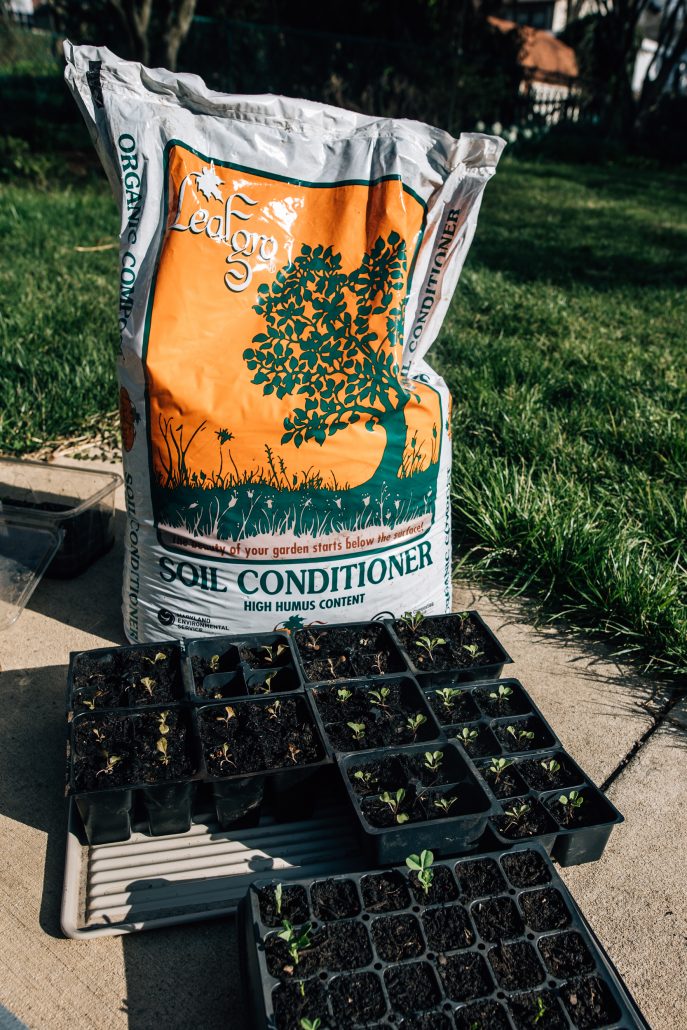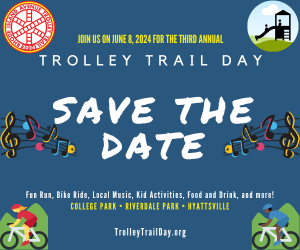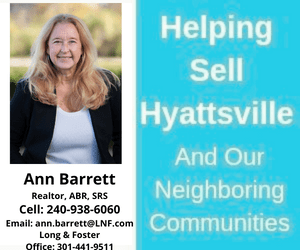By Juliette Fradin
April is Earth Month! Have you been looking for ways to limit your carbon footprint? Reducing food waste is one of the most impactful actions you can take, and the City of Hyattsville wants to help you. Later this spring, Hyattsville will roll out a city-wide distribution of compost bins to single-family residences.
In 2022, the city commissioned an extensive study with SCS Engineers about solid-waste services. According to this study, on average, a single Hyattsville resident generates 703 pounds of trash annually, or almost 2,000 pounds of trash per household per year.

Photo credit: Juliette Fradin Photography
In Maryland, most wasted food is landfilled or burned in trash incinerators. In 2019, the state recycled only 15% of its food waste. Unlike trash, food scraps and other paper items can be turned into a valuable resource. This is what we call a circular economy that closes the loop: It reduces material use; redesigns materials, products, and services to be less resource intensive; and recaptures “waste” as a resource to manufacture new materials and products, according to the Environmental Protection Agency.
The Prince George’s County Organics Composting Facility, in Upper Marlboro, transforms our food and yard waste into Leafgro Gold, a nutrient-rich soil compost. Leafgro Gold is sold at a number of retailers in the DMV area, including most Lowes and Home Depot locations.
The Hyattsville Solid Waste Division collects yard waste and food scraps each Monday using three trucks that facilitate individual curbside collection to 3,500 single-family homes. Residents will be able to mix food scraps and yard waste together into the same compost bin.
There are also drop-off bins at five locations throughout the city: Driskell Park, Heurich Park, University Hills Duck Pond, the Department of Public Works Operations Center and along the Rhode Island Trolley Trail (adjacent to the parking lot by the Palette at Arts District apartment complex, 5501 45th Avenue).
Hyattsville Director of Public Works Lesley Riddle said that these drop-off bins are very well utilized.
Since the launch of the pilot program, in 2015, the amount of compost and yard waste collected has consistently risen and currently is at 10 to 20 tons each week, according to Riddle.
She added that the City of Hyattsville wants to expand the program in order to divert more food waste from landfills. Riddle explained that one ton of compostable material is less expensive to dispose of than one ton of trash.
The city plans to equip each single-family home with a 35-gallon tote that will be delivered directly from the manufacturer to households (multi-family properties aren’t yet part of this next phase). The 35-gallon totes are about half the size of the county-provided 64-gallon recycling totes and a third the size of the city’s 96-gallon trash totes. City staff hope that eligible residents will receive their composting totes by early June, but supply-chain issues could result in later delivery.
According to Hyattsville Communications Manager Cindy Zork, the city is working with a contractor to create educational fliers about the bins in both English and Spanish. They hope that more residents will join the program. The city also plans to publish environmental information throughout April in celebration of Earth Month.
Besides food scraps, there are other waste products you might not have thought of composting, including human and pet hair, nail clippings, coffee grounds, bones, paper that is not glossy (e.g., brown paper bags), toilet paper rolls, paper egg cartons, soiled paper products, (e.g., pizza boxes, tea bags or paper plates), natural loofah sponges — and even some cell phone cases.
Just be sure to avoid composting grease, fat and pet waste. If you use a liner in your collecting bin, it should be compostable — or you can line it with newspaper! In addition to having a compost bin on your kitchen counter, place one in your bathroom and start collecting there, too.
Being mindful about your waste and disposing of it correctly will help you, your community and the Earth. Looking forward to seeing more compost bins out on Sunday nights!







